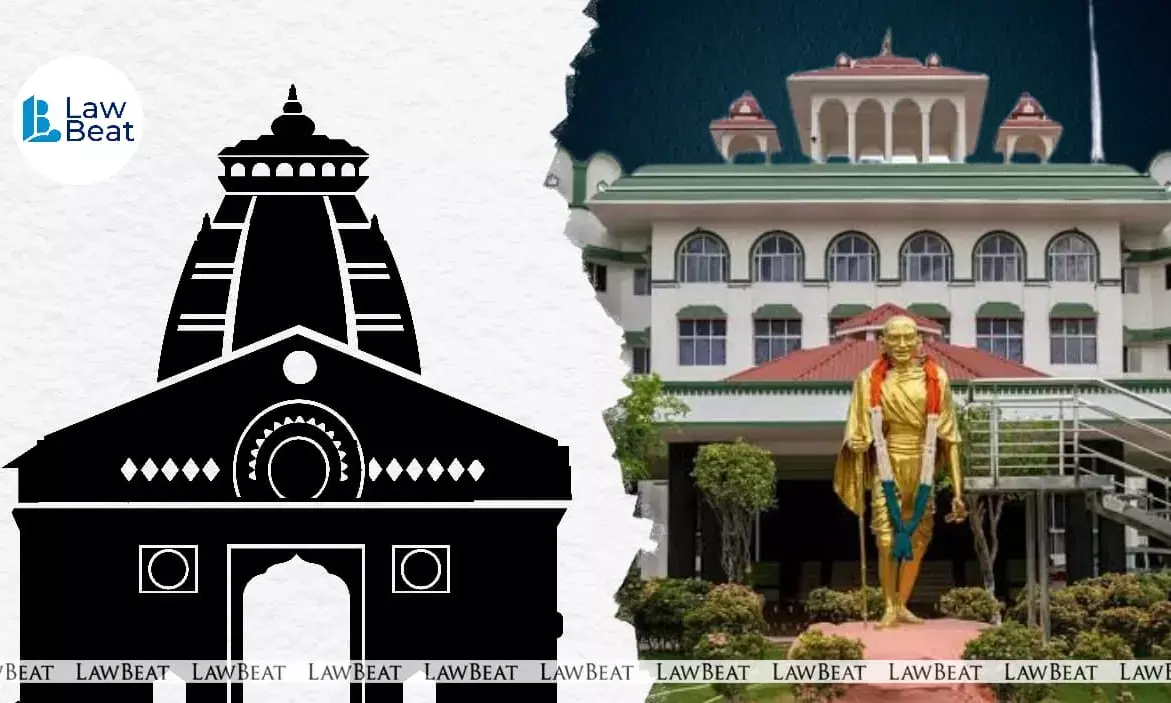'Stop Turning Temple Wealth Into Business': Madras HC Slams Use of Temple Funds for ‘Commercial’ Marriage Halls

The Madras High Court at Madurai Bench declared that equality in worship is “non-negotiable"
The Madras High Court at Madurai Bench recently made it clear that temple money cannot be diverted for non-religious use. Court has put an end to the State’s plan to use Rs. 80 crore from surplus temple funds for building and renting marriage halls in 27 temples across the State.
The government had planned to construct the marriage halls nearby temples on temple lands to assist Hindus to perform marriage functions with less expenditures. The government intended to rent out these halls. It claimed that a Hindu marriage is essentially a religious activities therefore, the halls construction would be for a religious purposes as provided under the Tamil Nadu Hindu Religious and Charitable Endowments Act, 1959.
However, the court clarified that under the 1959 Act, temple funds are meant strictly for religious or charitable activities like temple upkeep, rituals, festivals, feeding the poor, or supporting needy devotees. Court emphasized that when devotees donate, their intent is devotion not profit.
Though weddings are cultural and sacred events, court said charging rent for marriage halls means there’s no charitable intent, a core element of religion in this context. Such use transforms temple assets into commercial ventures, outside the scope of religious purposes under the HR&CE Act.
The bench reasoned that the government’s loose interpretation violated devotees’ trust and infringed on religious freedoms.
Court drew attention to Sections 35, 36 and 66 of the Act, which limit expenditure to temple maintenance, feeding of the poor, and support for needy Hindus. It further underlined that the procedure prescribed under the Utilisation of Surplus Funds Rules, 1960 such as public notice and scrutiny of proposals had not been followed.
Therefore, court allowed a bunch of petitions filed by activist Rama Ravikumar challenging five government orders issued between 2023 and 2025 granting permission for construction of marriage hall by utilizing the temple funds belonging to five different temples situated in different places.
Tamil Nadu is one of the few states where thousands of Hindu temples fall under direct government control. The HR&CE Department, set up under the 1959 Act, manages finances, staff appointments, rituals, and property for over 36,000 temples, 56 mutts, and numerous trusts and endowments.
This system was originally meant to ensure accountability and prevent misuse but it also led to debates over state interference in religious affairs.
The high level of control has brought several complications. Recently, the high court summoned HR&CE officers for allowing shops in ancient mandapams of Nellaiappar Temple, potentially harming heritage and religious ambiance.
Although, government efforts have retrieved thousands of acres of land encroached upon, yet billions remain unrealized in fair rent, and mismanagement continues to harm temple wealth.
In the present case, court rejected the State’s contention that marriage halls would serve Hindus by offering affordable venues for weddings. “Marriage in itself cannot be equated with a religious purpose under the Act,” court said.
court emphasised that the defining feature of a religious or charitable purpose is the element of service or devotion. Renting out facilities for profit, it held, lacks this charitable element and therefore falls outside the scope of the Act. It added that permitting such utilisation could open the door for further commercial use of temple wealth, contrary to the intention of donors.
Therefore, by drawing a strict line between religious purposes and commercial ventures, the bench reaffirmed that temple wealth must remain tied to worship and spiritual functions, not government-driven development schemes.
Case Title: Rama.Ravikumar vs State of Tamil Nadu and Others
Order Date: August 19, 2025
Bench: Justice S.M. Subramaniam and Justice G. Arul Murugan
